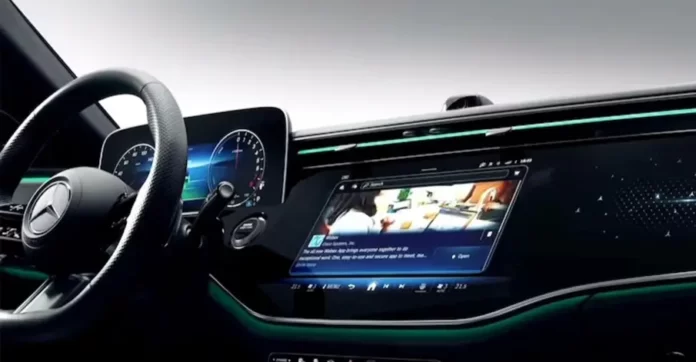
At the CES electronics trade fair, Mercedes-Benz unveiled an advanced virtual assistant, marking a significant advancement in the integration of artificial intelligence in automotive technology.
This innovative assistant not only offers context-sensitive suggestions but also engages in interactive dialogues with users, utilizing varying tones to express different emotions. Additionally, it is designed to ask precise questions for clarifying user requests, as highlighted by the company.
Mercedes’ Chief Technology Officer, Markus Schaefer, emphasized the interactive nature of this technology during a press roundtable in Las Vegas, describing the car as a “dialogue partner” that allows for productive conversations and queries.
The new feature is set to debut in several vehicles, including the concept CLA class, Mercedes-Benz’s latest all-electric version of their compact four-door model, showcased for the first time in North America at the trade show.
As electric vehicles (EVs) feature less complex hardware compared to combustion-engine vehicles, manufacturers are increasingly focusing on differentiating their offerings through software innovations.
Car voice assistant technologies are rapidly evolving, incorporating elements like personalized avatars and generative AI technology.
On the same day, Volkswagen introduced vehicles equipped with a voice assistant that integrates ChatGPT technology, offering drivers the convenience of having researched content read to them while driving.
Volkswagen plans for its assistant to engage in user dialogues and remember past inquiries for contextually relevant responses by mid-year.
A notable aspect of Mercedes-Benz’s new voice assistant is its ability to conduct plausibility checks for the information it provides. It verifies suggestions using cloud data and customer feedback, ensuring reliability, especially in situations like confirming the operational status of recommended restaurants or shops.
Schaefer emphasized the importance of trust in such in-car technologies, stating, “We feel that we have an obligation if we put something in the car that you can trust the information.”




